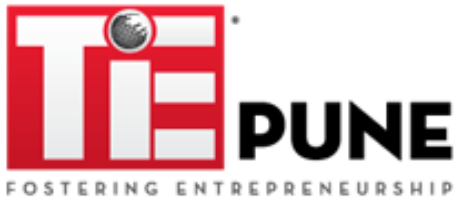
Never Stop Growing

Ashish Jain
If you put that famous line ‘change is the only constant’ in the start-up context, you’d get ‘Growth should be the only constant’. So, some entrepreneurs get over their teething problems and cross the choppy waters of the early years. As per statistics, just 10%, (though TiE Pune’s Nurture Program makes it 39%) get there. So, what happens next? Do they stay happy and content that they’re posting profits, got invested in, and have customers?
Not really. No one likes to stay static, even if it’s in a profit-making place. Ashish Jain started his company about 20 years ago. “I started as an events company, but then customers wanted more from me.” Strange as it may sound, his events company became a furniture manufacturing company. “We made shop fittings for stores. In those early days, retail was not organized, so retailers did not know where to source their fittings from.” We speak to some ‘old’ start-ups who have been there, done that, and are looking for that happy constant – growth. Sure, their companies are broken even, posting profits. And then?
Shark Shopfits was humming along smoothly with projects coming in and furniture moving out. But….says Ashish, “I wanted more. Today, if I am building the largest furniture for shops factory in Bhopal, it is because I wanted more.” The ‘more’ started by wanting to streamline his manufacturing. “we were making furniture alright, but everything was not moving smoothly.
“For example, we have different departments, one where the wood or metal is cut, the other where it is welded or joined. Since the cutting work was done mechanically it was quick, but the welding was done by hand which took time. So, we’d end up with a lot of inventory with pieces ready to be assembled”

Deepak Nagar
This was just one of the issues. That was when Ashish reached out to Deepak Nagar of Yagna Entrepreneur Success Services LLP, who helps start-ups such as Shark Shopfits keep growing. Says Deepak, “often start-ups that have established their businesses feel that if all the parts of the whole of their business, that is sales, production, maintenance, human resource, purchase etc, is taken care of, if they are independently improved by their department heads, then growth will follow automatically. What this actually does is spread the time, money, efforts and other resources too thin.” And not necessarily result in growth.
While companies will invest in ERP, ISO, etc., they wonder what the matter is. And this is where Deepak’s Yagna puts the Theory of Constraints to work. Says Deepak, “This is a theory that states that every business has a point of leverage that needs to be discovered. And once discovered and improved upon, while aligning all the parts/departments with this ONE initiative at a time, can help the company grow exponentially.”
Deepak asks, “if a chain has a thousand pieces, different links, and you want to make the chain stronger, what would you do? Obviously work on identifying the weakest link, work on it and make the whole strong. A 1000 link chain offers 999 avenues to waste time, effort, emotions and management attention. Not everything that can be improved, needs to be improved now or at the same time.”
In the case of Shark Shopfits, the pile-up of inventory was one weak link. What this meant was to ensure that the fitting-welding department became more efficient. Says Ashish, “Based on Deepak’s advice, we worked to get everything set for the welding department to work better. At times, their work would get stalled because screws weren’t available, or the paint wasn’t there. So we organized a full kit, always ready and waiting for the welding department. With this small change, the welding department does not waste time for a pipe or a screw to finish their work.” Identifying this weak link and providing the solution – a full kit ready for the welding department, has helped Ashish save 30% time and reduce inventory. “If it took me 15 days to get a project done, now I do it in 10 days.”
Of course, that is not all. Deepak found further ‘constraints’ at Shark Shopfits. Says Ashish, “Deepak showed us how we could make our marketing team more effective. While sales were happening, often team members spent too much time on small accounts. What this meant was the time was not commensurate with the money coming in. And limited human resources were chasing small accounts rather than using it more effectively for the big clients.
Says Deepak, “little tweaks and understanding help bring about huge changes in the business. If an entrepreneur learns to differentiate between the products which move fast and those that move slowly and respond accordingly, then it can help a great deal.”
Giving the example of another company that manufactures surface coating products and systems, he says, “Of the products he made, they could be divided into fast-moving, some were medium-paced and some were moving slowly. Earlier, he would make all these products with equal vigour. This meant that the fast-moving products would be out of stock soon and customers had to wait for their order.
“So, following the Made To Availability (MTA) theory made sense. This meant that fast-moving products are kept in stock always, so a customer would not have to wait for them. You don’t wait for orders to come. Out of a hundred, 20 were converted to MTA.
“Then comes the Assemble to Order (ATO) category. For these products the company decides to maintain stock of all the components. The products are assembled from available components after receiving the order. Last is the Made to Order (MTO) category. These are products that you make only when you get an order, since they are slow-moving goods. The result? Shorter turn-around time, reduced inventory and better management of time, effort and money.
Simple, yet effective changes. But the secret lies in knowing. What to change and how. Something that Deepak has mastered over the years. And something that some companies do even when business is humming along smoothly.
Contact us if you have a story to tell: rashmi.ghosh@tiepune.org

